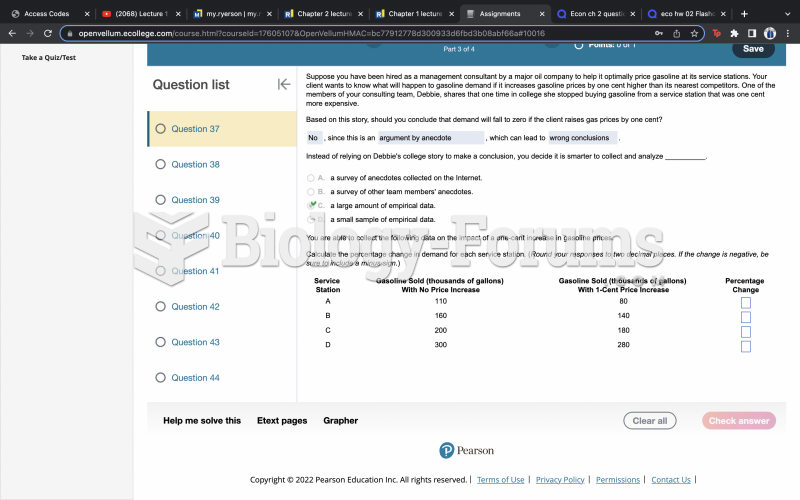|
|
|
The first oral chemotherapy drug for colon cancer was approved by FDA in 2001.
Multiple experimental evidences have confirmed that at the molecular level, cancer is caused by lesions in cellular DNA.
For pediatric patients, intravenous fluids are the most commonly cited products involved in medication errors that are reported to the USP.
A good example of polar molecules can be understood when trying to make a cake. If water and oil are required, they will not mix together. If you put them into a measuring cup, the oil will rise to the top while the water remains on the bottom.
Though Candida and Aspergillus species are the most common fungal pathogens causing invasive fungal disease in the immunocompromised, infections due to previously uncommon hyaline and dematiaceous filamentous fungi are occurring more often today. Rare fungal infections, once accurately diagnosed, may require surgical debridement, immunotherapy, and newer antifungals used singly or in combination with older antifungals, on a case-by-case basis.







